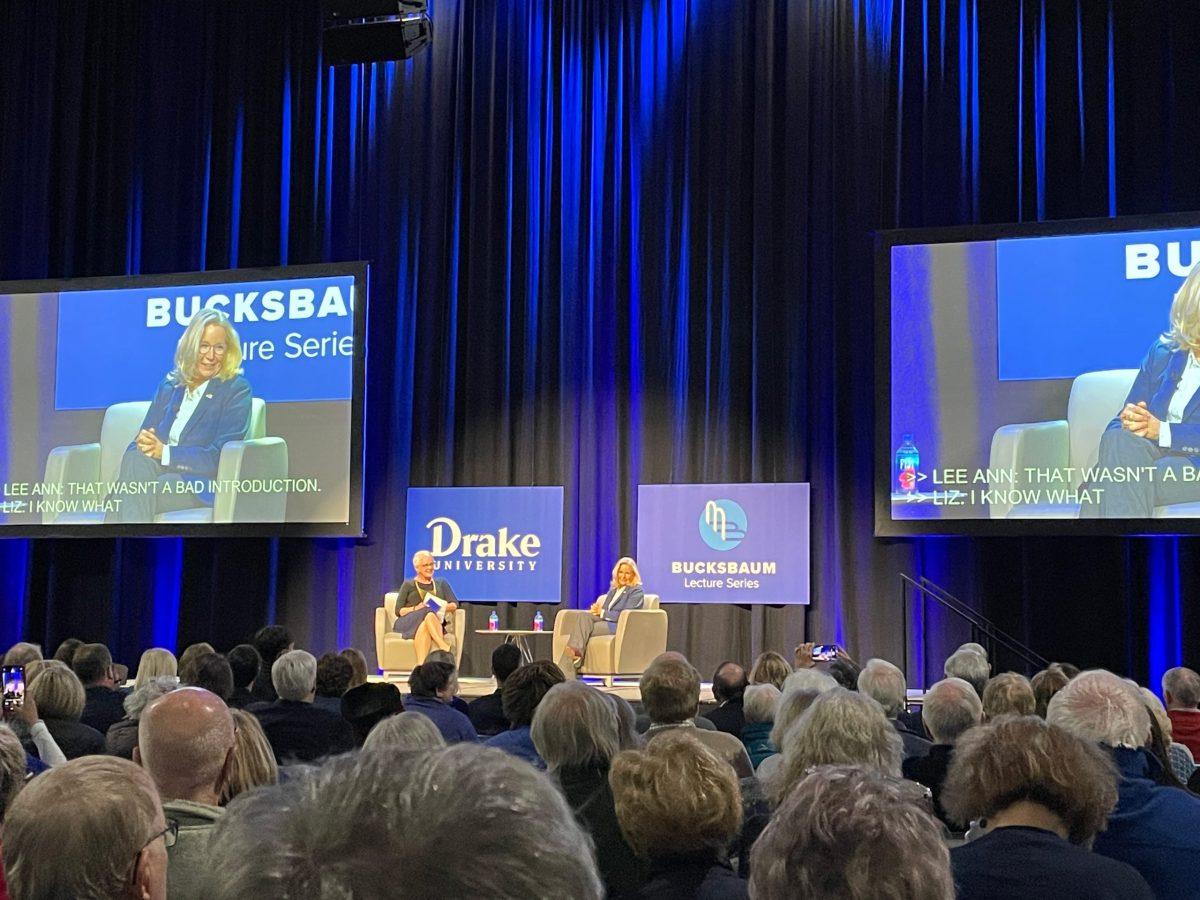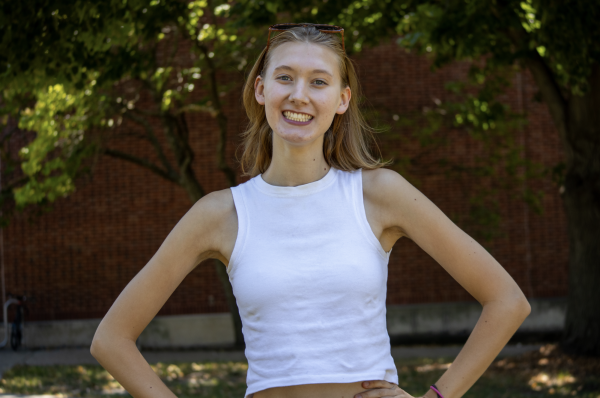Former Wyoming Representative Liz Cheney, most known for her speaking out against former President Donald Trump after the Jan. 6 Capitol attack, gave the Bucksbaum Lecture address at Drake University on March 27. Moderated by Lee Ann Colacioppo, editor of the Denver Post, her and Cheney’s conversation touched on the threat of a second Donald Trump presidential term, the future of the Republican party and the engagement of young voters.
Cheney, who met with students earlier in the afternoon for a brief Q&A, said she was pleased with the difficult questions and the care taken to ask them.
“I had the chance to talk to students and hear their questions and understand their commitment to the Constitution and encourage them to be engaged and involved,” Cheney said. “It really does give me hope, and the students here at Drake had wonderful questions. None of them were softballs, so I was pleased to see that.”
However, young people have expressed frustration with the state of U.S politics right now, with two presidential candidates that are not Gen Z’s ideal contenders.
“I fully understand people who sort of say, ‘Why would I want to get in the middle of that mess?’” Cheney said. “…But the problem is, right now, the people that are in the middle of the mess are making the mess worse. We really need people to run for office — people to be engaged and to support good candidates, and that’s never going to be more important than once we get through this election cycle.”
Skylar Lathrop, a junior at Drake University, wasn’t aware of Cheney’s truth-telling reputation in the Republican Party but was blown away by her perceptiveness.
“To be honest, I didn’t know anything about her except for the fact that she was a Republican,” Lathrop said. “After hearing her talk, I’ve kind of realized not everything needs to be so polarized. She’s so intelligent and full of wisdom, and she has so much to contribute, even if I don’t necessarily agree with her political views.”
Like young people as a whole, Cheney is also concerned about the upcoming presidential election.
“I’m certainly going to do everything that I can to make sure that people recognize, especially in swing states, that the danger that [Donald Trump] poses and why investing in him again with the power of the presidency would be an existential threat to the survival of the Republic,” Cheney said.
However, Cheney did not believe that the former president’s success in the primaries these last few months are indicators of an overarching success in the presidential race.
“If you look at the results in a number of these early primaries, what we saw was, in some instances, close to 30% of the Republicans say they won’t vote for Donald Trump,” Cheney said. “So, although he won, that is not a basis on which someone should go into a general election feeling any comfort about being able to prevail in the general [election].”
In recent primaries across the country, former presidential candidates Nikki Haley and Ron DeSantis attracted Republican votes that weren’t cast for Trump.
Lee and Kathy Turner, who attended the Bucksbaum Lecture, spoke highly of Cheney’s past actions.
“Liz Cheney speaks her truth, and we just need more of that,” Lee Turner said.
Both enjoyed Cheney’s comments on young people’s need for engagement surrounding public office.
“If you don’t have people of good character in office, how are you going to ever be able to change the way they operate?” Kathy Turner said.
A general consensus from the lecture is the prevailing sense of deviation from American politics that has been historically known as stable.
“Our politics right now are undergoing a tectonic shift,” Cheney said. “What’s happening in the Republican Party is very dangerous. And I think that we now have one of our two major political parties that has abandoned the Constitution, and I don’t say that lightly, and I say that with a real sadness. I hope that one of the outcomes of this period after we defeat Donald Trump in November will be that we’ll look at how we conduct politics.”
Cheney, who is the daughter of former Vice President Dick Cheney, referenced the 2000 vice presidential debate between her father and recently deceased former Connecticut Sen. Joe Lieberman. Cheney saw the debate as a prime example of political civility, an expectation that has been absent from modern politics.
“We all have a responsibility to incentivize our public officials to engage in substantive debate, to be respectful,” Cheney said. “I hope we will walk back from the edge of this abyss that we’re looking into that has become so divisive and partisan and so toxic in so many ways.”








